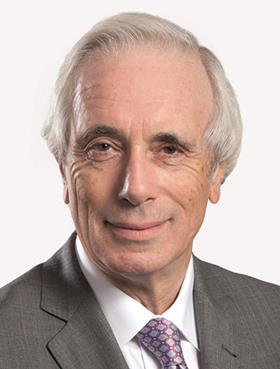Since the start of the year, there has been much industry speculation about what will happen when the music stops.

Competition for UK assets has been hotting up, with ever-increasing overseas interest in London and the regions failing to provide the returns that they require. At Palace Capital we are what we call “picky”. Before we look at any deal, we do our homework very carefully, and probably conduct more due diligence than may be considered necessary - which experience has taught us to do. As sure as night follows day - and it is probably happening now - there will be an economic correction, although not necessarily a downturn. When it comes, it will be crucial to have the right assets in the right places. Many investors who are holding the wrong assets, at the wrong prices, in the wrong locations could find life becoming very uncomfortable.
When we set up Palace Capital back in 2010, we saw the opportunity to make good returns from an upturn in the regions. Together, my chairman Stanley Davis and I acquired control of the smallest AIM-listed company we could find. At the time we had a lofty market capitalisation of £100,000.
I had been in this business long enough to know that with London picking up, an upturn in the regions would ultimately follow, probably within 18 months to two years. Back then acquiring suitable portfolios was very difficult. The banks were in no rush to sell properties at the right price, and debt providers were virtually non-existent.
Our first major acquisition that put us on the map in 2013, was a portfolio owned by Quintain comprising 24 assets spread across the country. We can all use Google Earth, but we took the trouble to actually go and see every property. As they were all so widely spread it came as no surprise to us that hardly any prospective buyers had viewed them. Our meetings with the tenants and the local letting agents showed that the regional upturn had begun, but this had not reached the media, nor was it reflected in any statistics.
Notwithstanding that we had agreed a deal based on a net yield of circa 13%, it was not easy to find a corporate stockbroker who understood that this was a golden opportunity. In London, we live in a bubble, with the perception that north of Watford must be a desert. Out of eight City brokers that we saw, only one was sufficiently streetwise to take us on.
Fast forward to today, and Palace Capital has completed a number of significant acquisitions. We have had fantastic support from our shareholders, and have raised £63.5m in fresh equity so that we now have a regional portfolio valued at approximately £140m, with our net gearing at only 23%.
I travel to the regions all the time, not only in connection with our own portfolio but also to meet agents and owners to seek acquisitions, and to keep up with what is really happening.
We are still picky - even more so now, as we started to detect some weakness in the regional investment market in the autumn of last year. In our view, location in the regions is critical. There is still huge interest in the regions from China, and in particular from US investors boosted by the strong dollar, but we are still finding off-market transactions in our kind of towns.
I have been through four downturns, so one always needs to be ready for any eventuality. We keep our gearing modest, invest in the right places and manage our assets actively. When the music stops, we will still be in business.
Neil Sinclair is chief executive at Palace Capital





























No comments yet